Vowel Recognition Normal Phonics Worksheets for Ages 4-7
12 filtered results
-
From - To
Unlock the reading potential of young learners with our "Vowel Recognition Normal Phonics Worksheets for Ages 4-7". Designed to make early literacy fun and interactive, these worksheets help children identify and differentiate between vowels. Perfect for preschool to first grade, our engaging activities include matching, coloring, and tracing exercises that develop phonemic awareness. By boosting their ability to recognize vowel sounds, kids gain a strong foundation for reading and spelling skills. Crafted by education experts, these resources support teachers and parents in fostering joyful learning experiences. Download today to give your child a head start in their literacy journey.
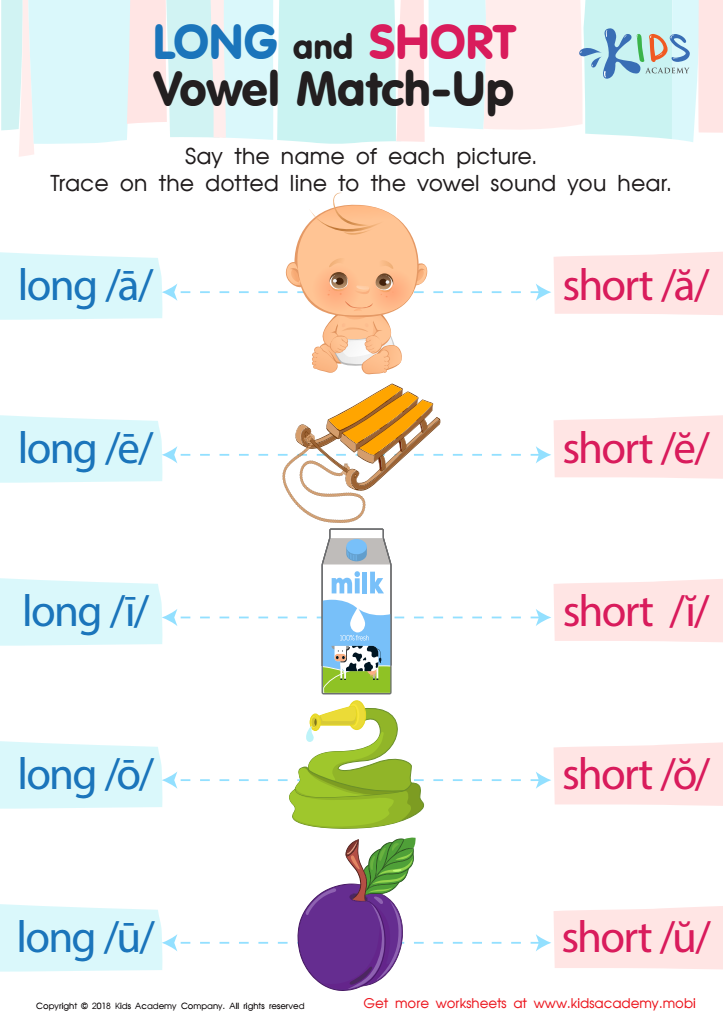

Long and Short Vowel Match up Reading Worksheet


Let's Check Long Vowels: Assessment Worksheet
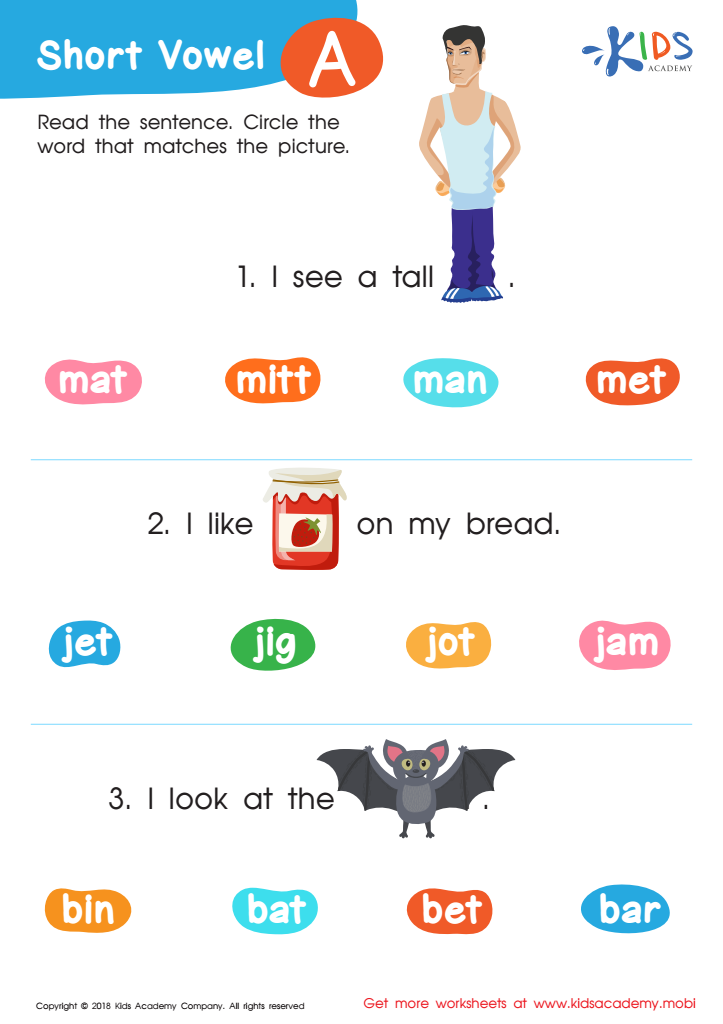

Short Vowel /a/ Worksheet


Short Vowels /e/, /i/, and /u/ Worksheet
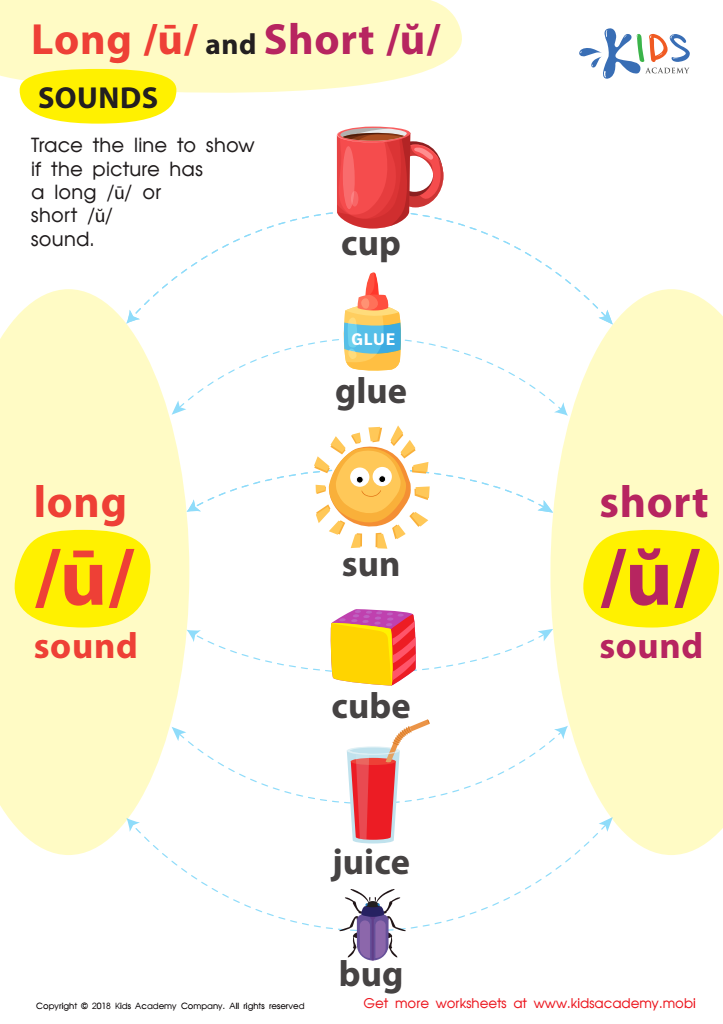

Reading: Long U and Short U Sounds Worksheet


Long Vowel Maze /o/ and /i/ Worksheet


Short Vowel Eggs Worksheet
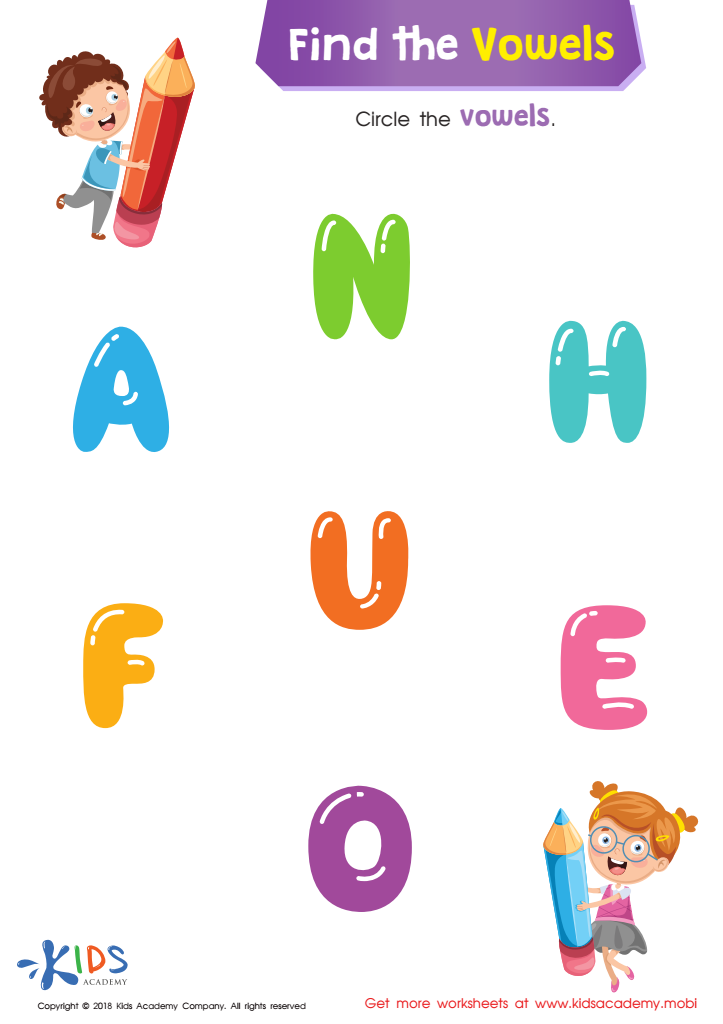

Find the Vowels Reading Worksheet
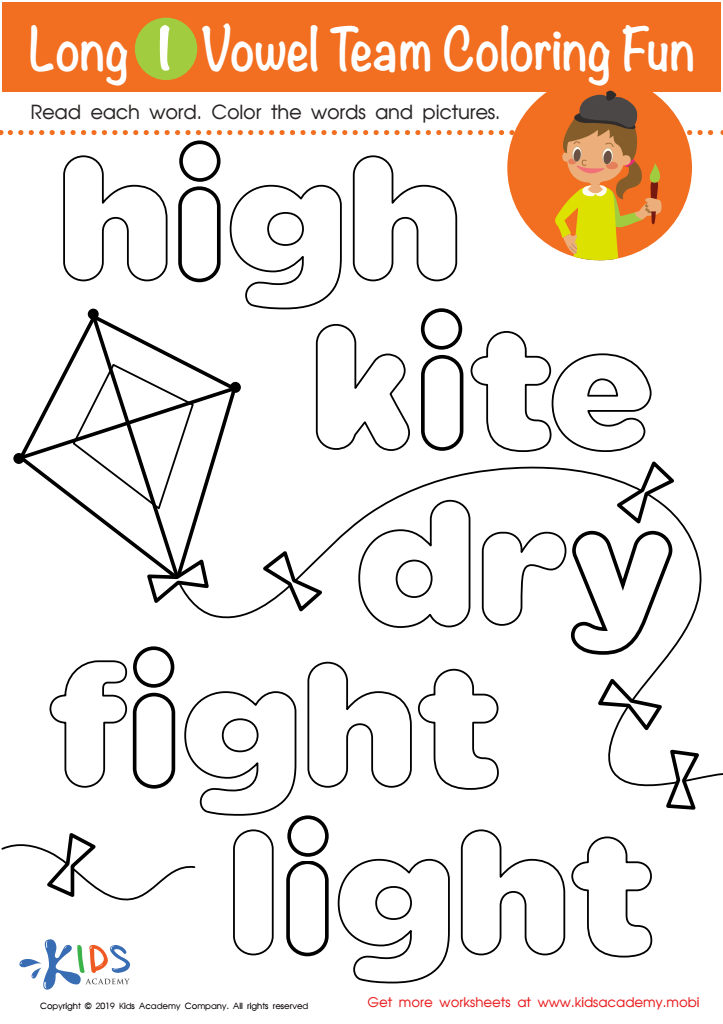

Long I Vowel Team Coloring Worksheet
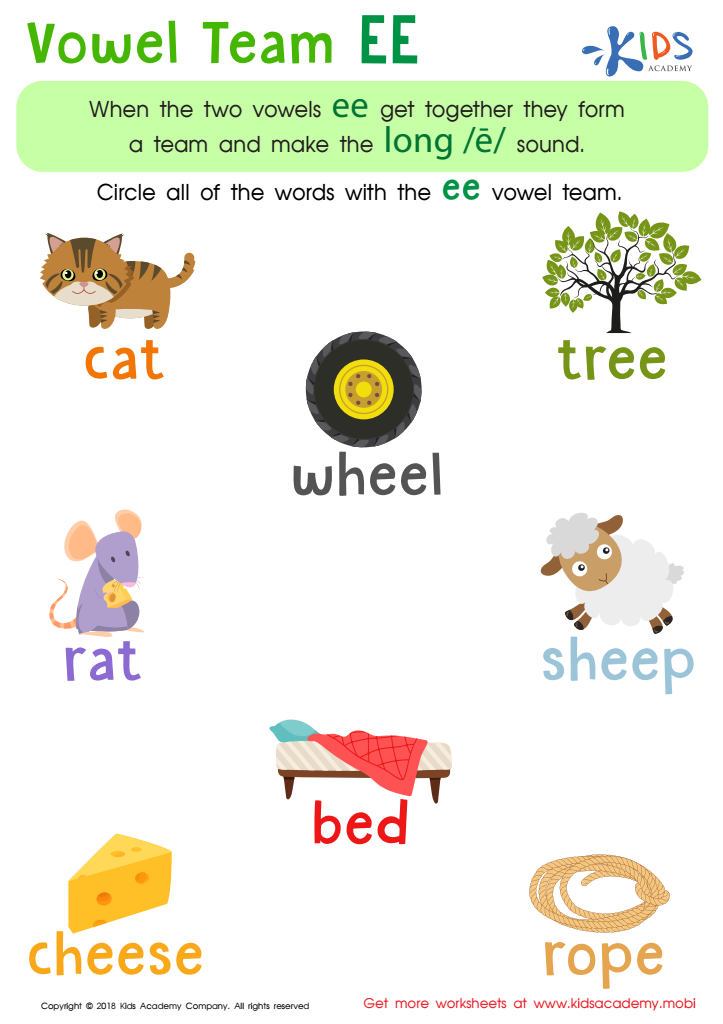

Reading: Vowel Team EE Worksheet
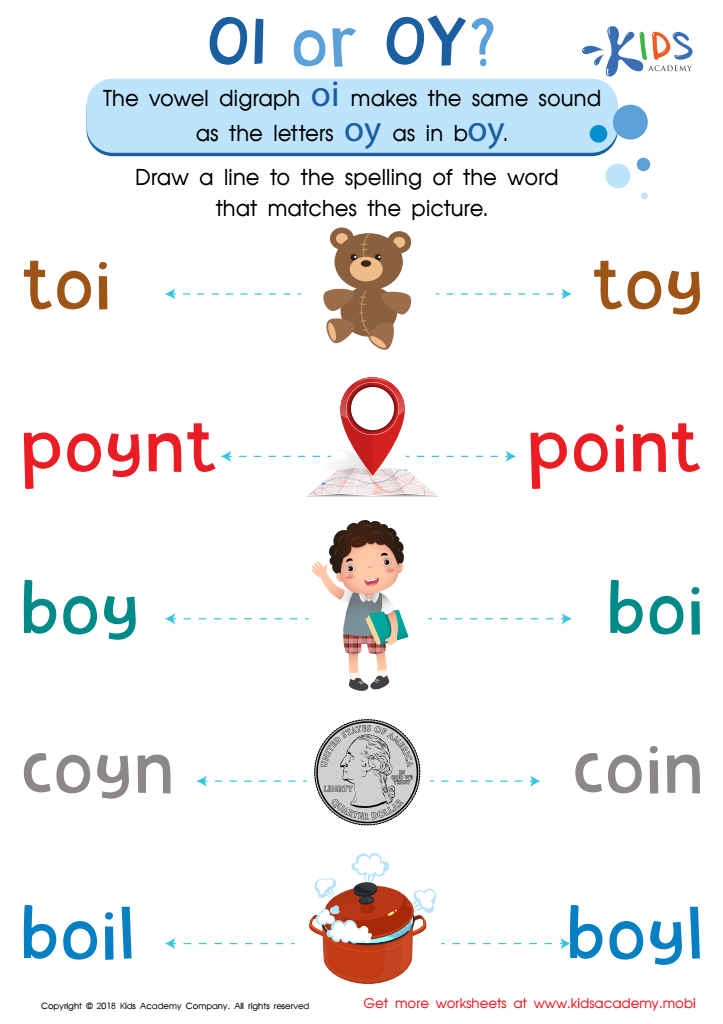

Reading: OI and OY Worksheet


Long and Short Vowel Sentences: Assessment Worksheet
Vowel recognition is a fundamental aspect of early childhood literacy, and addressing it within the framework of Normal Phonics is crucial for children ages 4-7. At this developmental stage, children are learning to decode written language, and vowels play a key role in understanding how letters come together to form words. Proficiency in vowel recognition enables young learners to correctly pronounce words, which is necessary for developing reading fluency and comprehension.
By focusing on vowel recognition through Normal Phonics, parents and teachers provide children with a structured and systematic approach to learning. Normal Phonics breaks down the English language into manageable patterns and rules, making it easier for children to grasp complex concepts. This phonetic approach also enhances spelling skills, as children learn to associate vowel sounds with their corresponding letter patterns.
Moreover, a strong foundation in vowel recognition and phonics boosts a child's confidence, making them more eager to read independently. Research indicates that early literacy skills are predictive of later academic success, so instilling these abilities at a young age sets the groundwork for lifelong learning. By emphasizing vowel recognition in early education, parents and teachers help ensure that children become competent, enthusiastic readers who can tackle more advanced texts and subjects as they progress in their education.

 Assign to My Students
Assign to My Students




















